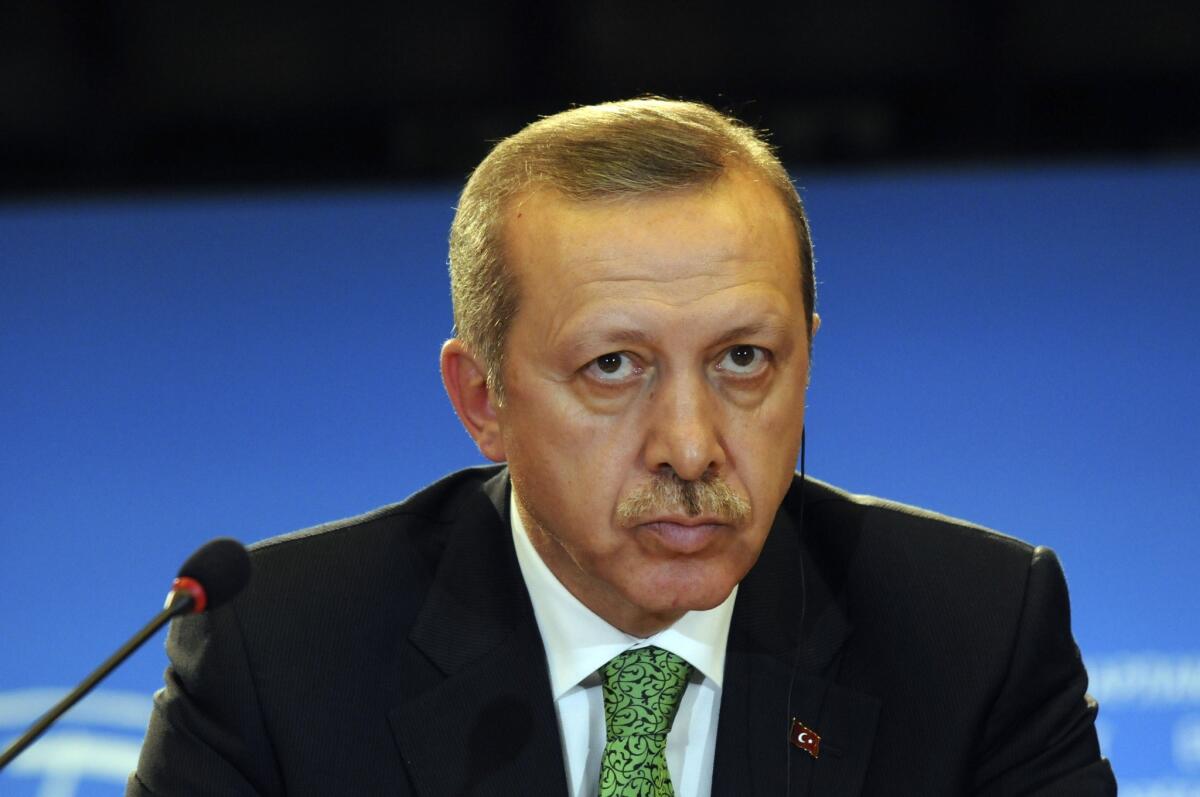In Turkey, troubling signs of authoritarianism

Turkey’s Prime Minister Recep Tayyip Erdogan gives a press conference after a meeting at the European Parliament in Brussels.
- Share via
When Recep Tayyip Erdogan came to power in 2003 as Turkey’s prime minister, questions arose about how his Islam-rooted Justice and Development Party might alter a nation accustomed to nearly a century of
official secularism. It turns out the world should have been more concerned with a move toward authoritarianism, which seemed to accelerate last week under a new law through which the government gave itself the authority to block Internet sites and track individual online users without court review.
Critics speculate that the government hopes both to limit a corruption probe into some of Erdogan’s allies and to squelch protests and demonstrations, thus muzzling one of the fundamental rights of citizens in a democracy. The law would help the government disrupt protests before they could come together and hunt down organizers through their Internet use. It also would allow the government, which already has a poor record on press freedoms, to monitor the contacts of investigative journalists.
Those are the moves of a dictatorship, not a democracy, and they raise significant concerns for the international community given Turkey’s status as a key United States ally, a member of NATO and a would-be member of the European Union.
The measure has drawn sharp, and warranted, criticism from within Turkey and from such international organizations as the Committee to Protect Journalists and the Organization for Security and Co-operation in Europe. The European Court of Human Rights has ruled that an existing version of the law that allowed judges to block certain sites — YouTube is among those affected — violates the European Convention on Human Rights. Instead of revising the law to meet the convention’s free-expression standards, Turkey opted instead to move further along the road to repression by letting the government act without even the thin imprimatur of judicial review.
Last summer, the government responded to demonstrations with tear gas, rubber bullets and arrests. Those protests, like those that grew out of the Arab Spring movement, were organized in part via social media, which Erdogan — who denied this past weekend that the new law will impede free speech — has described as “a scourge” and “a menace.” So the immediate question is, how will he wield his new powers?
Turkey needs to reverse course, and the U.S. should urge it to do so. Past American alignment with repressive governments has often complicated diplomatic efforts, and contributed to skepticism around the world about how strongly the U.S. supports human rights. Turkey is an important and welcome ally in a turbulent region. This would be a good time for both countries to show leadership in protecting free expression and the fundamentals of democracy.
More to Read
A cure for the common opinion
Get thought-provoking perspectives with our weekly newsletter.
You may occasionally receive promotional content from the Los Angeles Times.









